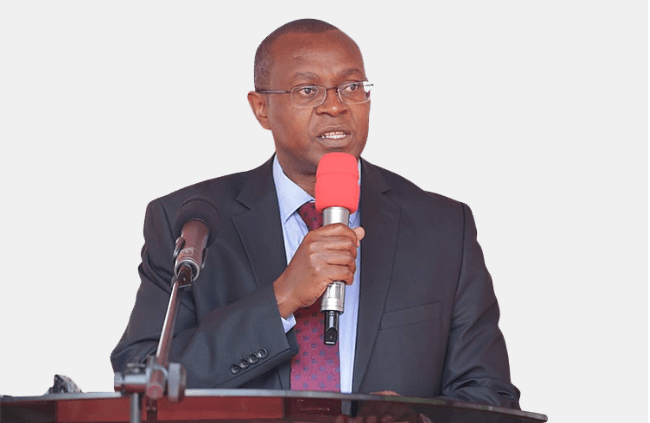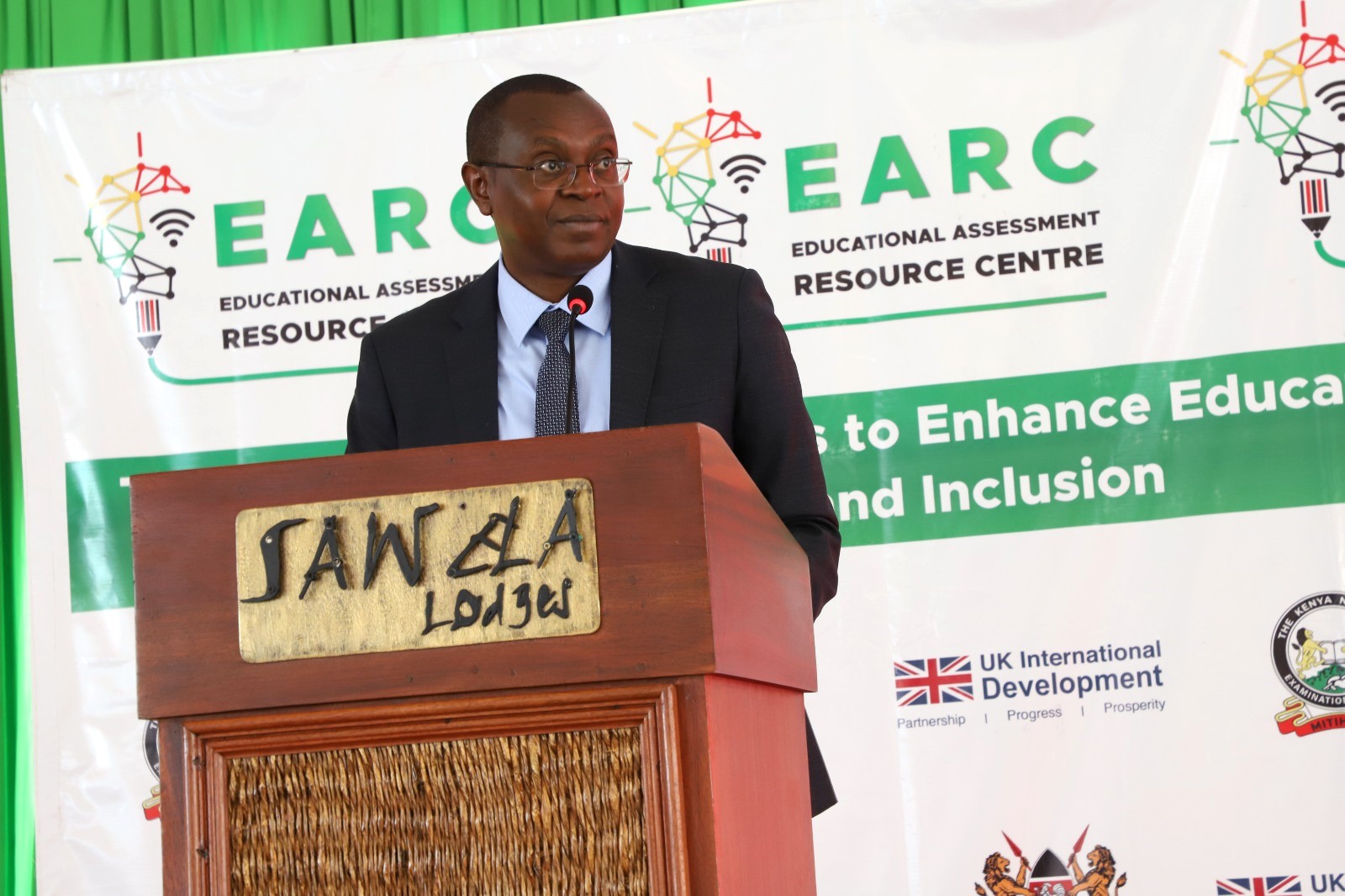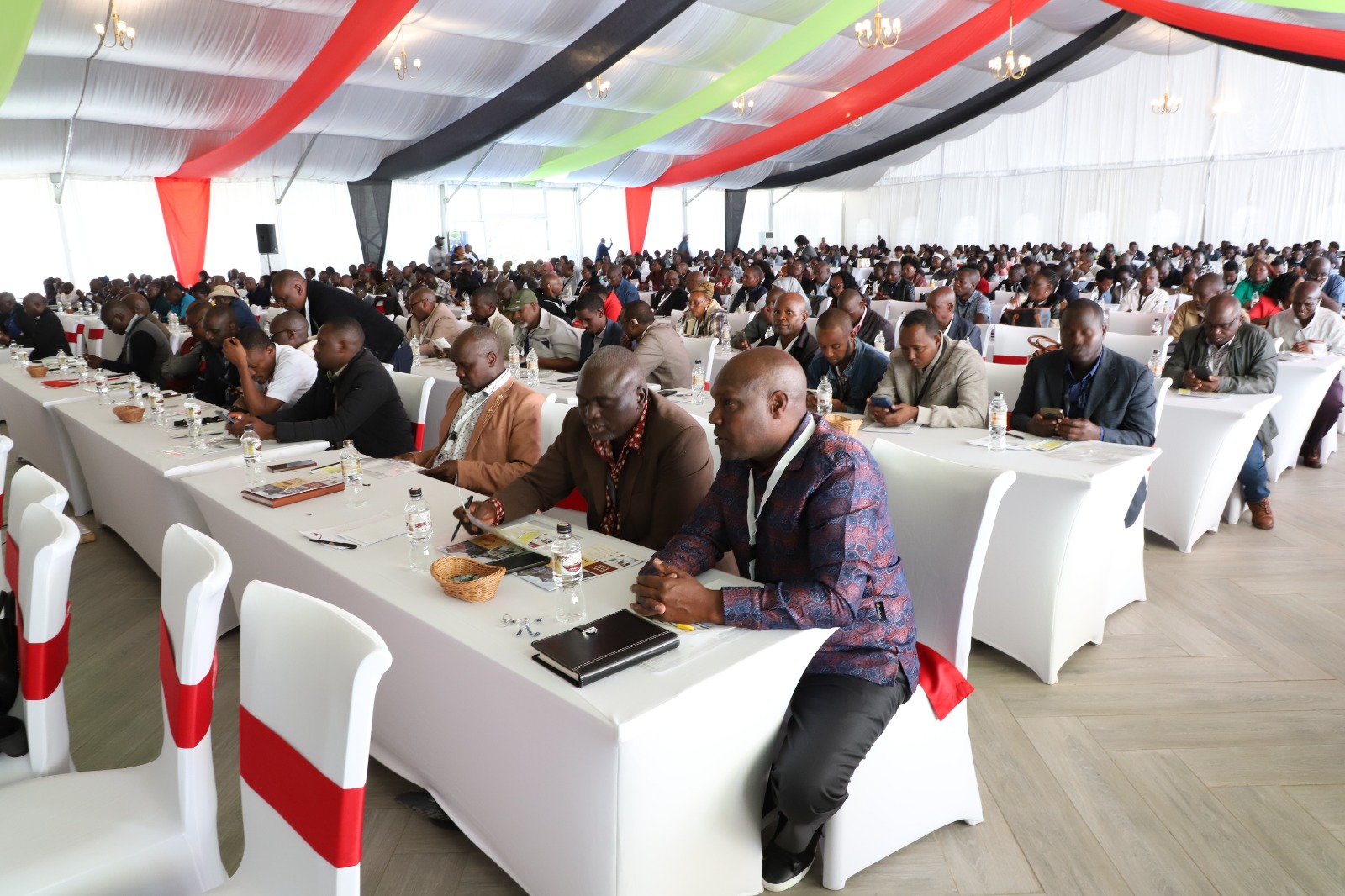
 KNEC CEO, Dr. David Njengere, speaks during the opening of the two-day sensitisation workshop for senior school principals and teachers on competency-based assessment at Sawela Lodges, Naivasha, on November 26, 2025. /KNEC
KNEC CEO, Dr. David Njengere, speaks during the opening of the two-day sensitisation workshop for senior school principals and teachers on competency-based assessment at Sawela Lodges, Naivasha, on November 26, 2025. /KNECThe Kenya National Examinations Council has launched an aggressive national drive to prepare teachers and principals for a new era of Competency-Based Assessment as the country braces for the first cohort of learners to enter Senior School in 2026.
The initiative, unveiled, Wednesday during a two-day sensitisation workshop for senior school principals and teachers at Sawela Lodges in Naivasha, signals one of the most significant assessment shifts since the move away from the traditional 8-4-4 examination regime.
Knec Chief Executive Officer Dr David Njengere described the workshop as a defining moment in the rollout of Competency-Based Education at the senior level. He told participants that Kenya was entering a phase that demands new thinking, new tools, and new approaches to evaluating learners’ skills.
“It is both an honour and a privilege to welcome you to this national sensitisation workshop,” Dr Njengere said, noting that the transition requires assessments that “value knowledge application, skills demonstration, creativity, and real-world performance.”
The CEO said the Council had over the years reformed its systems to respond to global and national needs, but the shift to Competency-Based Assessment required a deeper cultural change among educators.
 Participants follow proceedings during the two-day sensitisation workshop for senior school principals and teachers on competency-based assessment at Sawela Lodges, Naivasha, on November 26, 2025. /KNEC
Participants follow proceedings during the two-day sensitisation workshop for senior school principals and teachers on competency-based assessment at Sawela Lodges, Naivasha, on November 26, 2025. /KNEC
Dr Njengere explained that the framework was particularly important at Senior School because of the specialised pathways that learners will pursue. The three pathways include STEM, Social Sciences, and Creative and Performance Arts & Sports Science.
To strengthen implementation, Knec has established the Research, Innovation and Educational Assessment Resource Centre. The CEO said the department was created after the rollout of Junior School assessments exposed gaps in teacher preparedness, assessment literacy, and opportunities for innovation. He said the Centre would now drive capacity-building, collaborative partnerships and research-based reforms across counties.
He praised the team behind the two-day workshop, saying extensive planning had gone into ensuring that principals and teachers receive practical guidance.
A key highlight of his remarks was the announcement of new Senior School Assessment Hubs. The hubs will mirror the model successfully used in Junior School, where 235 hubs were established to support collaboration, benchmarking and innovation among teachers.
He said the new hubs were essential as the country prepares for the Grade 10 transition. He noted that teachers would require stronger technical skills, advanced assessment models, and greater competence in pathway-specific learning.
The hubs will serve as county-level resource centres where teachers can access structured training and technical support. They will also function as innovation incubators where educators can experiment with new assessment rubrics, project-based learning, and ICT integration.
“They will enhance assessment literacy by providing ongoing mentorship, professional learning sessions, and technical troubleshooting,” he said, adding that they would also anchor collaboration among public, private, and special needs schools.
The sampling framework for the hubs excludes Junior School hubs to widen coverage. Additionally, 30 special schools offering the Stage-Based Curriculum at vocational level have been included to ensure they receive assessment capacity support.
The CEO told participants that their presence was critical because they would become “assessment champions” in their counties. He said they would be expected to mentor fellow teachers and guide learners through the new assessment processes.
"At the end of this programme, this training is designed not only to build your individual skills but to strengthen institutional preparedness for Grade 10 assessments and beyond," Dr Njengere said.
"You have a leadership role; therefore, you must deeply understand why, what, and how CBE works so you can guide others, solve emerging challenges, and participate actively through shared platforms."
Over the two days, the workshop will cover the operational framework of Assessment Hub schools, registration and transfer procedures, forms of assessment, scoring systems and reporting of learner performance. It will also address pathways and tracks, ICT use in the CBA portal, and community service learning.
Dr. Njengere also said the expected outcome was a strengthened partnership between Knec and the hub schools, a well-trained pool of teachers and a harmonised national approach that guarantees fairness and quality for all learners.
He thanked the Ministry of Education for its support and commended teachers for embracing change, saying Kenya was on track to be a regional leader in competency-based assessment through teamwork, innovation, and dedication.

















